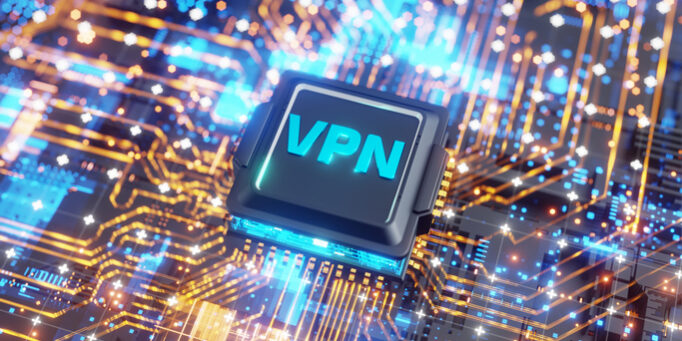Can a VPN Provide Secure Remote Access for Your Small Business?
An old joke says that the three secrets to business success are “Location, location, location.” In the digital age, where you can do business from just about anywhere, the three secrets to sustained success might be “Security, security, security.” Here are a few disturbing statistics from IBM’s Cost of Data Breach Report for 2022. On average, it takes companies 207 days to identify a data breach and another 70 days to contain it. The average cost of a data breach in the United States is $9.44M, unless you’re in the healthcare industry, where the average is more than $10M. The average cost to resolve a successful ransomware attack is $4.54M.
If you own and operate your own small business, you probably don’t have a few million to toss out the window because a hacker compromised your system. You know that allowing remote access to your network raises the risks of a breach, but you can’t shut down the system you need to compete and serve your customers. So, what can you do to beef up security while still remaining nimble in the field?
One necessary component to a secure remote-access network is a Virtual Private Network or VPN. A VPN is a service you can subscribe to that creates an encrypted online connection. The VPN hides your IP address from corporations, government agencies, and hackers. VPN makes you anonymous online, so you have greater privacy. It can even allow you to disguise your location, so you can get around geography-based blocking. For example, if you wanted to listen to an out-of-market MLB game on Internet radio, a VPN enables you to hook into a server in the service area and stream the play-by-play.
The VPN works with your private network when you are onsite, but you can also use it when you are working remotely through public Wi-fi, so your communications across the web are encrypted.
VPNs are very easy to use. Another advantage to VPNs is that they’re very cost effective. They are cheaper to use than older network solutions, such as buying a secure ‘leased line’ from an ISP or manually ‘allowlisting’ individual IP addresses assigned to remote workers.
Of course, no network solution is perfect. There are a number of disadvantages to using VPNs that you need to be aware of:
- Levels of privacy vary according to the particular VPN service
- A VPN can reduce your connection speed, slowing productivity
- Using a VPN on a mobile device increases data usage. This can be an issue if you aren’t on an unlimited data plan.
- Some online operators ban VPN users from accessing their services
- VPNs are illegal in some countries that practice Internet censorship, so you can be fined or jailed.
Perhaps most importantly, VPNs can make it difficult for you to monitor workers’ misuse of your network. Shielded by anonymity, your workers could be emboldened to visit sites they should not access with their work devices. This can include unsafe sites loaded with malware that can infect your system.
As we’ve stated repeatedly on this blog, worker training is essential to network security. Companies sustain the greatest amount of damage from cyber-attacks because workers fall for dirty tricks, which in hindsight turn out to be patently obvious. Your workers must understand the limits to the VPN’s protection, so they don’t get the idea they’re invulnerable when using it.
If you want to add VPN service to your repertoire of network defenses, consult a knowledgeable IT professional. At KMF Technologies, we help businesses tailor VPN solutions to their network usage. We discuss nitty-gritty issues that affect the bottom line, such as scalability, reliability, and maintenance demands. We help our clients make the best-informed decisions for their particular business.
A VPN is a minuscule expense, especially when weighed against the average cost of a business data breach. Yet it is a vital necessity, which you cannot afford to overlook.


